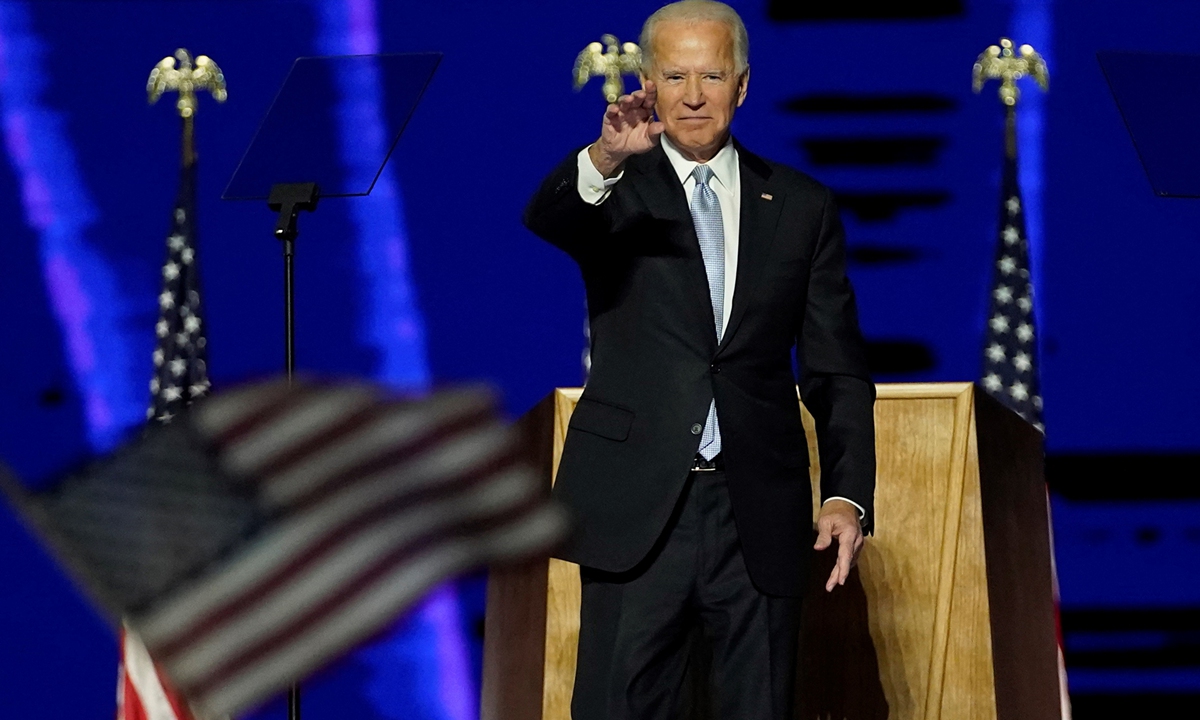Biden’s China policy advisers oppose ‘decoupling’ but unlikely to be soft on China: experts
By GT staff reporters Source: Global Times Published: 2020/11/23 19:18:40

Joe Biden Photo: AFP
Members of US President-elect Joe Biden's China policy team are unlikely to take a soft tone on China, but they generally go against the "cold war" and "decoupling" touted by President Donald Trump, experts suggested, adding that resumption of people-to-people exchanges may raise the curtain of Biden's China re-engagement policy.Media outlets recently released a potential list of Biden's China policy advisers, including Antony Blinken, top foreign policy adviser to Biden's 2020 campaign; Susan Rice, a key colleague of Biden during the Obama administration; and Michèle Flournoy, whom the incoming administration is considering for US secretary of defense.
These politicians are generally close and familiar to Biden, with years of experience in foreign affairs. Biden's value of his cabinet's demographic diversity and versatility is also reflected in the his talents pool which contain at least two female members, said Sun Chenghao, a research fellow with the Institute of America Studies, China Institutes of Contemporary International Relations.
Most of them are very experienced in dealing with China-related issues, unlike many of the newcomer politicians on Trump's team of advisers.
Reversing Trump's China policy is unlikely, as is fully following Obama's, because relations between the US and China are changing rapidly, Sun suggested. "But we can expect Biden to first resume the disrupted people-to-people exchanges under the Trump administration, such as the reopening of consulates and renewing the visas for Chinese journalists and students in the US, Sun suggested.
The new generation of Democrats will be tougher on China than the Obama-era, particularly on traditional disputed human rights and security issues, experts said. But some have expressed optimism that potential cooperative achievements on nuclear issues regarding North Korea and Iran, joint efforts to fight against COVID-19, and addressing climate change can be used as a buffer against conflicts in those traditional disputed areas.
The core foreign policy advisers are believed to be long-term, loyal aides to Biden as well as experienced veterans, whose ideas on foreign affairs are consistent with Biden's poised political path of a middle-of-the-road line, said Lü Xiang, a research fellow at the Chinese Academy of Social Sciences in Beijing.
"But unlike in 2009 when the Obama administration took office, the US now faces a more powerful China, so Biden's close officials are certainly putting more emphasis on the issue of great power competition, chief among which is the rivalry between the US and China," Lü said.
Posted in: IN-DEPTH